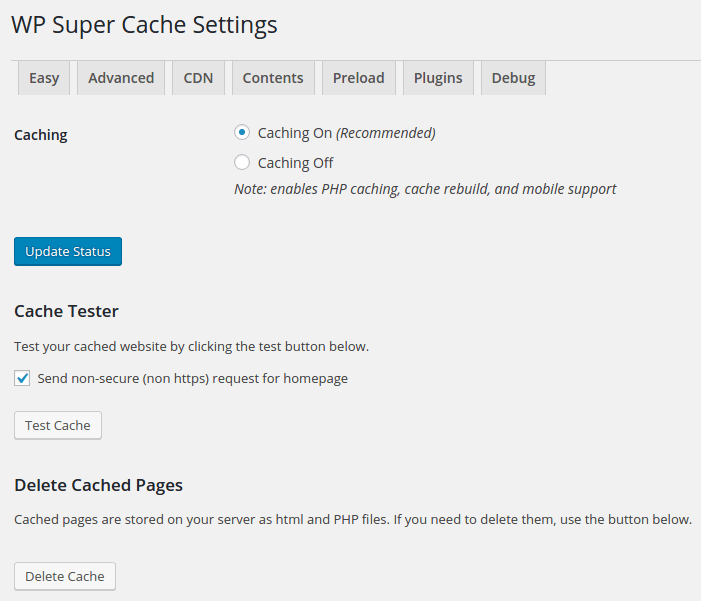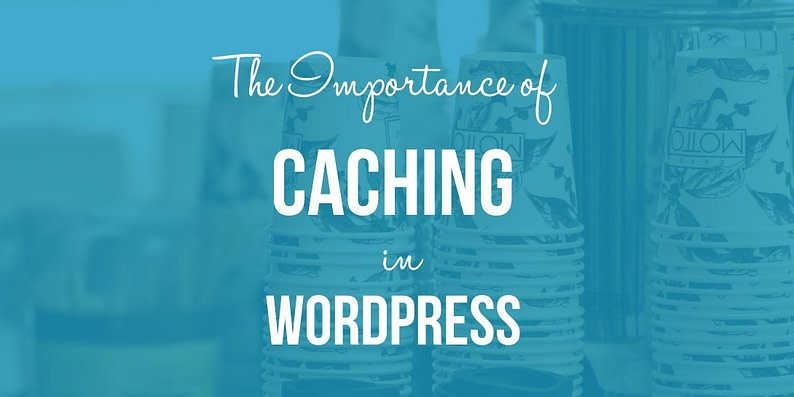When it comes to optimizing your website, the role of caching in WordPress can never be underestimated. Quite a lot has been talked about caching on the internet in general. Yet, it still remains a relatively lesser utilized feature among a large section of the WordPress user base.
What exactly is caching all about?
We know that it can speed up our websites, but is there more to it?
How should we employ caching to boost the performance of our WordPress websites? Are there any specific considerations to bear in mind?
This article will answer all of the above questions related to caching in WordPress.
The importance of caching in WordPress
What is caching?
To begin with, let us take a moment to familiarize ourselves with the process of caching in general.
In simple terms, caching refers to the process of creating static versions of your content, and serving that to visitors . Static pages are generally rendered quickly in browsers. This leads to faster performance of your website.
In WordPress, rendering or fetching a page (or post or custom post type) requires back and forth queries to be sent to and from the database. Now, more often than not, you will create a post or a page and then you won’t be updating it everyday. Caching creates static copies of your post or page, and serves that to visitors. This way, the back and forth queries to and from the database can be avoided, thereby reducing the server load.
The benefits of caching
👉 There are various benefits of caching in WordPress, such as:
- First up, it enhances the speed and performance of your website. Static cached files load faster than dynamic database queries, and this leads to faster and better performance of your website.
- Caching can also help reduce the load on your hosting server. This can save server memory and I/O operations. As a result, caching is fast becoming a vital feature, especially for folks using limited, shared hosting plans.
- Faster websites do not just load fast, but also get a favorable rank with search engines. This, obviously, depends heavily on other metrics as well, such as the quality of your content and your SEO settings. But all other things being constant, a website that loads faster will getter a better pagerank than a slower one. Google has confirmed that it takes pagespeed in consideration.
- Cached websites provide for a better user experience overall. A faster site helps users browse better. Furthermore, cached site means that the user’s bandwidth is also saved (albeit by a nominal margin), since static cached pages are less in terms of filesize as compared to dynamic requests. To make this happen, your caching solution must make use of combined and minified JavaScript and CSS, apart from just basic page caching.
Impressed already? But how do you enable caching in WordPress? The easiest way to do so is by means of plugins. 🔌 There are several free and premium WordPress plugins out there that help you to enable caching on your website. We shall take a look at some of the key ones 👇 here:
Popular WordPress caching plugins
WP Super Cache
WP Super Cache is a free WordPress plugin with over two million active installations. It generates static HTML files for your WordPress site. This way, your website functions faster than a non-cached site.

WP Super Cache is a simple plugin, but it offers good scope for customization as well. You can also make it work in sync with your CDN service. WP Super Cache is a safe bet if you are new to caching in WordPress and are looking for a plugin that is under steady development.
W3 Total Cache
W3 Total Cache is another extremely popular caching plugin for WordPress users, being in use on over a million active sites. Unlike other cache plugins, W3 Total Cache does more than just generation of static pages. It can also help you minify and compress your scripts, and leverage various other tools to further speed up your site.
As expected, W3 Total Cache is a rather complicated plugin with a slightly steeper learning curve. If you are relatively newer to WordPress caching plugins, this one might be overkill for you.
WP Fastest Cache
WP Fastest Cache generates static HTML pages of your content to speed up page load times. In addition to WordPress caching, it also offers various performance optimization options, such as the ability to minify HTML and CSS and speed up JS scripts.

WP Fastest Cache also supports GZip compression that can be used to reduce the size of files sent from your server. This plugin is free, but is backed by a premium version that comes with added features, such as the ability to integrate with CDN services.
Cache Enabler
Cache Enabler offers an extremely simple and easy to use interface. In other words, this plugin does what it is meant to do – cache your content and serve static cached pages to visitors.

Cache Enabler is probably meant for you if you need a simple cache solution. This plugin does not involve heavy configuration or settings. It simply works out of the box. On the other hand, if you are used to something that offers granular control over every aspect of caching, Cache Enabler might seem rather unimpressive to you.
When we first published this post back in 2016, Cache Enabler was a new plugin and was way less popular than the other entries on this list. At the time, it had only a little over 6000 active installs.
Fast forward to 2023, and it now boasts over 100,000 installs and counting. That’s still significantly dwarfed by some of the more popular caching plugins featured here, but nonetheless, it’s an impressive growth of more than 16 times its user base from back then. That type of rise in popularity isn’t an accident or a coincidence – Cache Enabler does what it’s supposed to do.
Comet Cache
Comet Cache offers caching features such as generation of static HTML pages, as well as optimization features like GZip compression. It supports both browser and server-side caching. Currently, Comet Cache has over 40,000 active installs.

Comet Cache also has a Pro version, that lets you do stuff such as integrate with CDN services, run custom PHP code, enforce canonical URLs, etc. The Comet Cache interface is slightly confusing though, and not as clean as that of the other plugins on this list. You might need some time before you get used to it.
WP Rocket

WP Rocket is a premium solution, but it has been proven to deliver perhaps the best results out of all WordPress caching tools on the market. (This is probably why they charge money.)
WP Rocket is easy to set up, and also offers more individual features compared to the other plugins on this list. It is also the caching solution that we use on this very blog.
Final thoughts on caching in WordPress 🧐
Caching in WordPress is very much like every other optimization and performance related tweak. It needs to be done together with other measures to truly work.
🚀 If you really want to speed up your site, you should also go through these quick wins for site speed.
Having a good cache solution always helps. If your site fails to load fast, you will lose business and visitors. As such, you should consider setting up a cache plugin on your site at the earliest.
Which WordPress cache plugin do you use and why? Share your views in the comments below!


























Or start the conversation in our Facebook group for WordPress professionals. Find answers, share tips, and get help from other WordPress experts. Join now (it’s free)!